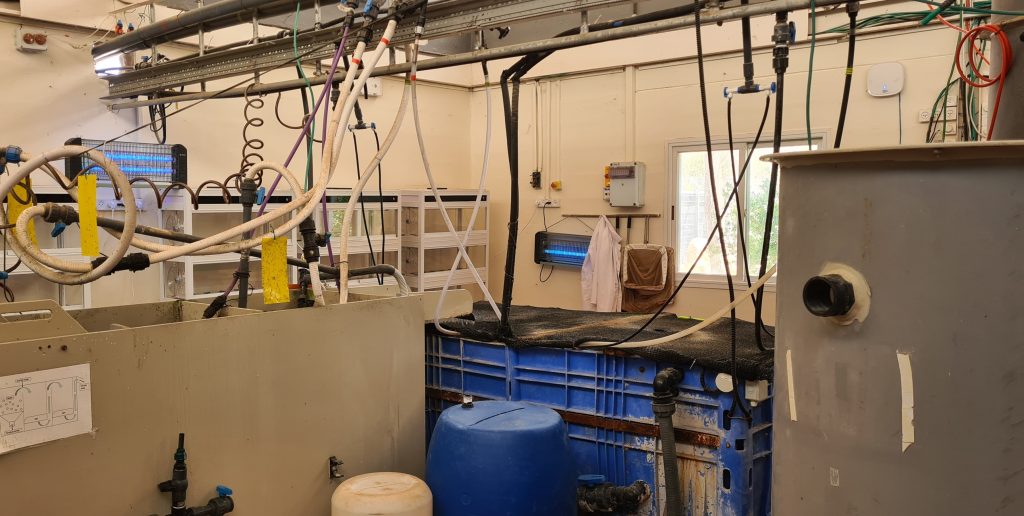The Ben-Gurion University (BGU) Demonstrator on indoor aquaponics is a climate-smart farming technology with high potential for profitable farming in water-scarce environments while improving the production capacity of animal-based protein and plant-based diets. The demonstrator focuses on improving water use efficiency, crop yields, and environmental sustainability through cutting-edge technologies such as sensor systems, and data-driven farming, and energy based on photovoltaic. The Demonstrator serves as a prototype and is advanced through technological iteration, aiming to address the challenges of farming in arid and resource-limited regions.
The BGU Demonstrator was launched to address the pressing challenges of farming in arid and resource-limited regions. With increasing water scarcity, soil degradation, and the need for sustainable food production, the project was designed as a testbed for advanced agricultural technologies. The Demonstrator aims to demonstrate how innovative solutions, such as sensor and data-driven farming, can improve agricultural productivity while conserving resources using electricity from photovoltaic cells. The initiative reflects BGU's commitment to promoting sustainable agriculture and developing solutions that can be applied in other arid regions worldwide.
- Enhance Water Efficiency: Develop and implement precision irrigation systems to maximize water use efficiency in agriculture.
- Increase Crop Yields: Leverage cutting-edge technologies, including sensors and data analytics, to improve crop productivity and reduce waste.
- Promote Sustainable Farming: Showcase environmentally friendly agricultural practices that minimize the impact on natural resources and reduce carbon footprints. Photovoltaic systems can supply clean, renewable energy to power aquaponic systems, a concept tested in the BGU demonstration site as part of an integrated approach to sustainable agriculture.
- Advance Agricultural Research: Foster research in innovative agricultural technologies and data-driven solutions to optimize farming practices in arid environments.
- Create a Scalable Model: Develop a demonstration prototype that can be replicated and scaled in other regions facing similar environmental and agricultural challenges.
- Installation of Precision Irrigation Systems: Advanced irrigation technologies were implemented to optimize water use and improve crop yields in water-scarce conditions.
- Deployment of Sensor Networks: Sensors were installed to monitor soil moisture, weather conditions, and crop health, providing real-time data to optimize irrigation and farming decisions.
- Farmer Training and Collaboration: Farmers were trained on the use of precision agriculture technologies, ensuring they could effectively integrate these tools into their practices.
- Data Collection and Analysis: Data-driven farming was a key component, with continuous data collection on crop performance, water use, and environmental factors to improve farming efficiency.
-
Community Engagement: Outreach programs were conducted to engage local communities and demonstrate the benefits of these technologies for sustainable farming.

The BGU Demonstrator's most significant achievement is the successful demonstration of reduced water consumption while increasing crop yields and producing fish as protein source for healthy diets. Through data-driven farming and the use of advanced sensor systems, agricultural productivity can be enhanced in arid regions with minimal environmental impact. This success has positioned the demonstrator on aquaponics as a leading model for sustainable agriculture in dry climates.
- Data-Driven Agriculture Increases Efficiency: Real-time data collection and analysis are essential for optimizing water use and increasing crop yields in challenging environments.
- Training and Support are Key: Providing farmers with the necessary training and ongoing technical support is crucial for the successful adoption of new technologies.
- Sustainable Practices Can Be Profitable: Environmentally friendly farming methods not only conserve resources but also lead to increased agricultural productivity, proving sustainability and profitability can go hand in hand.











